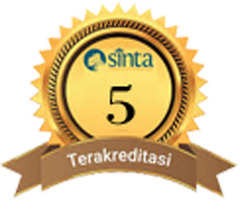NILAI-NILAI TAZKIYAT AN-NAFS DAN IMPLEMENTASINYA DALAM PENDIDIKAN ANAK (KAJIAN SURAT ASY-SYAMS AYAT 7-10)
DOI:
https://doi.org/10.22373/fitrah.v3i2.1502Keywords:
Tazkiyat An-Nafs Values, Children's Education.Abstract
This research is entitled "The Values of Tazkiyatun An-Nafs and Its Implementation in Children's Education". Human nature is the most perfect creature created by Allah SWT with the status of caliph and bears a very heavy moral responsibility because human nature tends to good and bad. Given this nature, humans are required to live this life with purity of body and soul. Seeing this, researchers are interested in researching the concept and form of tazkiyatun an-nafs in Surah ash-Shams verses 7-10 and how to implement tazkiyatun an-nafs in children's education. The purpose of this study was to look at the concept and form of tazkiyatun an-nafs in surah ash-Shams verses 7-10 and how to implement it in children's education. The approach used is a qualitative approach through library research using primary and secondary data sources. The results obtained are the concept of tazkiyatun an-nafs in the letter asy-Shams verses 7-10, namely the human soul has a tendency to do good and do evil, to avoid evil deeds, humans must cleanse the soul from despicable traits, get rid of all heart diseases. , and adorns the soul with commendable qualities. The implementation of tazkiyatun an-nafs in children's education can be done by instilling awareness of carrying out daily worship required by religious teachings because these worships such as prayer, fasting, reciting the Koran, and other noble deeds are one of the ways to purify the soul that can be implanted. on the child and must be done by the child from an early age.
Downloads
Published
How to Cite
Issue
Section
License
Authors who publish in this journal agree to the following terms:
- Authors retain copyright and grant the journal right of first publication with the work simultaneously licensed Attribution-NonCommercial-ShareAlike 4.0 International (CC BY-NC-SA 4.0) that allows others to share the work with an acknowledgment of the work's authorship and initial publication in this journal.
- Authors can enter into separate, additional contractual arrangements for the non-exclusive distribution of the journal's published version of the work (e.g., post it to an institutional repository or publish it in a book), with an acknowledgment of its initial publication in this journal.
- Authors are permitted and encouraged to post their work online (e.g., in institutional repositories or on their website) before and during the submission process, as it can lead to productive exchanges and earlier and greater citation of published work. (See The Effect of Open Acces)



